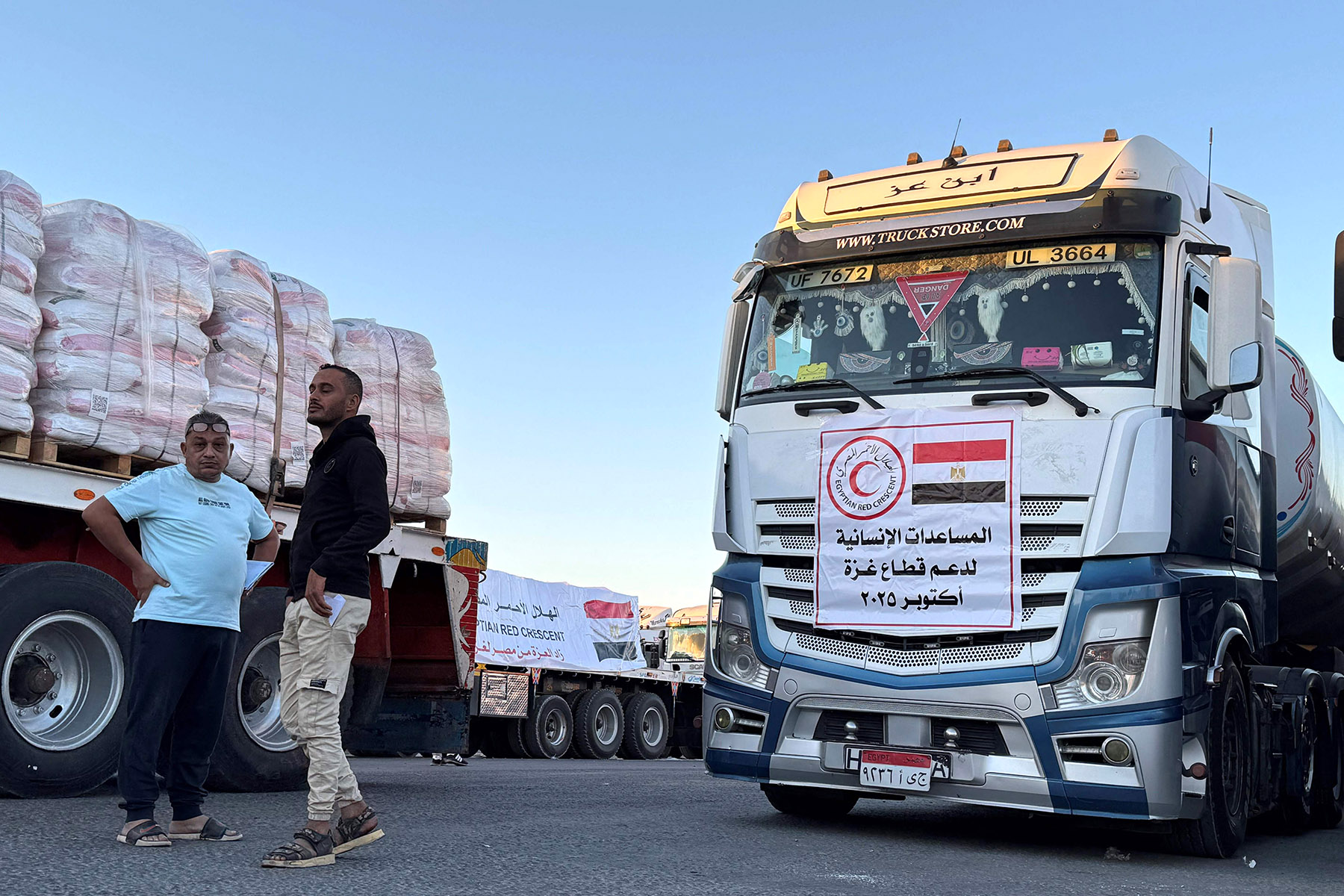Israel urged to ease aid flow; Hamas finds it hard to retrieve deceased hostages amid rubble

After the cheers for reunion with families of freed Israeli hostages and Palestinian prisoners under the fragile phased truce on Gaza, people from both sides and beyond have noted challenges for the next phase of the US-backed ceasefire and difficulties of retrieving the bodies of Israeli captives from destroyed areas.
Even US President Donald Trump, who was cheered during his visit to Egypt and Israel for his role in the truce, had to acknowledge the sad situation Hamas faces.
“It’s a gruesome process. I almost hate to talk about it so. But they’re digging. They are actually digging,” Trump told reporters at the White House on Oct 15.
“There are areas where they are digging, and they are finding a lot of bodies. Then they have to separate the bodies. You wouldn’t believe this. And some of those bodies have been in there a long time. And some of them are under rubble. They have to remove rubble,” Trump said.
Under the truce deal, 28 bodies of Israeli captives in Gaza were to be returned, but so far only nine have been brought back to Israel.
Hamas and the International Committee of the Red Cross (ICRC) had spoken of Gaza’s vast destruction, with some bodies in areas controlled by Israel.
Hamas spokesman Hazem Qassem told Xinhua News Agency that the technical and logistical challenges resulting from the massive destruction of Gaza pose serious obstacles to the identification and recovery of the bodies, a task analysts described as impossible.
The ICRC has stated that the teams may not be able to find some bodies.
Israeli hostage negotiator Gershon Baskin had also said in an interview with CBS News that there would be difficulty in returning the bodies of the captives because several Hamas commanders who buried the bodies of the captives had been killed. He added that the bodies could also be deep under the rubble.
At a press briefing on Oct 15, United Nations Development Programme (UNDP) Special Representative of the Administrator for the Palestinian People Jaco Cilliers, speaking from Jerusalem, said the destruction in Gaza “was almost beyond comprehension”.
Israel has been urged to ensure the smooth flow of humanitarian aid into Gaza. Israel was reported to have halted the reopening of the Rafah border crossing and severely cut the delivery of aid because of the pace of retrieval, citing the slow delivery of bodies of hostages that Hamas had held in Gaza.
Farhan Haq, a deputy spokesman for the United Nations Secretary-General, said on Oct 15 that the UN and its partners would continue scaling up operations under a 60-day response plan to reach as many people as possible.
“Much more can be done, and for this to happen, as we said, we need more crossings to open, as well as the sustained entry of fuel and cooking gas; security guarantees for convoys; basic infrastructure to be restored; protection of humanitarian workers; the facilitation of NGO access, including through ensuring they are not de-registered; and the rapid injection of funding to support humanitarian operations.”
The United Nations humanitarian chief, Tom Fletcher, has urged Israel to immediately open more crossings into the famine-stricken Gaza Strip to allow for a surge in aid deliveries.
In remarks to reporters on Oct 16, Fletcher said that the UN is seeking a dramatic boost in humanitarian aid for Gaza, adding that the hundreds of relief trucks cleared to enter the devastated enclave were nowhere near the thousands needed to ease a humanitarian disaster.
Al Jazeera Arabic quoted the Director General of Gaza’s Government Media Office Ismail al-Thawabta as saying he had called on Israel to open the crossings and to allow aid into the enclave “immediately”.
An Israeli security official said that preparations were underway to open Rafah to Gazan citizens, while a second official said that 600 aid trucks would go in.
Earlier, Spokesperson of Qatar’s Ministry of Foreign Affairs, Majed Mohammed Al-Ansari, told Fox News that talks to begin the second phase of the agreement have already started in Sharm el-Sheikh, Egypt.
He said they postponed the examination of many issues until the second phase of ceasefire negotiations, so that the first phase could happen smoothly.
“Currently … difficult negotiations have begun to examine the process of securing the Gaza Strip and its administration and ensuring that the war does not resume,” Al-Ansari said.
The Sharm el-Sheikh Peace Summit on Oct 13 released a joint declaration by state leaders of the United States, Qatar, Turkiye, and the host Egypt. It supported enduring peace and prosperity for both Palestinians and Israelis.
The declaration said the four leaders are committed to resolving future disputes through diplomatic engagement rather than using force or protracted conflict, a stance backed by other participants.
The summit witnessed the participation of leaders from over 20 countries, as well as regional and international organizations. The Egyptian presidency said the summit aimed to “end the war” in Gaza and “usher in a new page of peace and regional stability”.
Amid the Israeli military campaign, some 67,938 Palestinians have been killed and 170,169 others injured, according to Gaza health authorities. Thousands of bodies are still under the rubble.
Gokhan Batu, an analyst on Israel studies at the Center for Middle Eastern Studies in Turkiye, told China Daily that in theory, the return of hostages “could have made it easier for (Israeli Prime Minister Benjamin) Netanyahu to resume the war, strengthening his domestic leverage and public confidence”.
However, he said, Trump’s “firm stance” has limited that possibility and redirected momentum toward maintaining calm.
Contact the writers at jan@chinadailyapac.com


